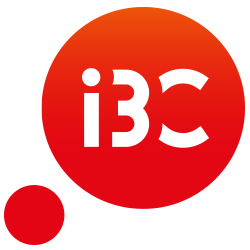Our stories define us. Early family life affects how leaders respond to pressure and react when team members compete for their attention. It influences whether they have close or distant relationships with the people who report to them, communicate directly or indirectly, micromanage or empower, encourage debates or shut them down.
According to Carol S. Pearson, author of Mapping Organizational Psyche, our family mantras can shape the way we lead.
- Always be in control.
- Find yourself and your path.
- Be strong.
- Be kind.
- Think for yourself.
- Fight for what you want.
- Fight for what you believe in.
- Help those in need.
Do any of them sound familiar to you?
- Was your family open or guarded?
- Were emotions encouraged or repressed?
- Were your parents nurturing or uninvolved?
If someone feels a need to change, addressing these childhood mantras is never easy. To begin with, most leaders are not even aware they have problems because these processes and dynamics are largely unconscious. Those who vaguely recognize their issues may see them as unchangeable personality traits and dismiss them with “that’s just the way I am.” Others deny the existence of their problems because they are afraid of looking weak among fellow executives or because they lack the self-awareness, the willingness to examine their past.
However, gaining insights into such childhood dynamics can help leaders to explore how these experiences may have influenced their behaviour throughout the years and what impact they have had on the way they deal with others, and on the way they treat themselves.
Changing or rewriting the childhood mantras can’t happen without attention and focus. Once these dynamics are brought out of the unconscious into the light, leaders can make big improvements.
So, how can we connect with our life stories and use them to increase our self-awareness?
First, it is important to carve time for self-reflection. Think about the story you tell yourself about who you are. Potential questions to consider:
- Did family members speak openly or rarely speak their mind?
- Were emotions openly shared or rarely disclosed?
- How did your primary caregivers respond to pressure?
- Were relations with your extended family (such as aunts, uncles and cousins) close or distant? Why?
- What was your role in your family?
- What events have been most impactful/defining in your life? (Identify at least three events that you can reflect upon and explore more deeply. These trigger events can be positive or negative in terms of outcomes.) What makes them noteworthy?
- What themes, beliefs, values, strengths, and/or shortcomings can you observe or draw from these events?
- What words, phrases, or metaphors do you use to describe yourself in these situations/events?
- How can you use this information now in your role as a leader?
Second, enlist the help of trusted others, such as a mentor, coach, or trusted colleague with whom to talk about what you have reflected upon and the insights/lessons learned. Information from others also serves as a source of feedback to gauge the accuracy of the self-information you gather. Potential questions to consider:
- If you had to tell this person your story in three acts, what would they be?
- How do they perceive you? What values, strengths, or shortcomings do they see in you? How do these match (or mismatch) with the ones you identified?
Although it can be challenging, thinking about your life story can be a powerful way to discover your leadership resources and capabilities, as well as the areas to improve.
Should you need any help or further support, connect us: https://ibc-trening.hu/wings-program/


Legutóbbi hozzászólások